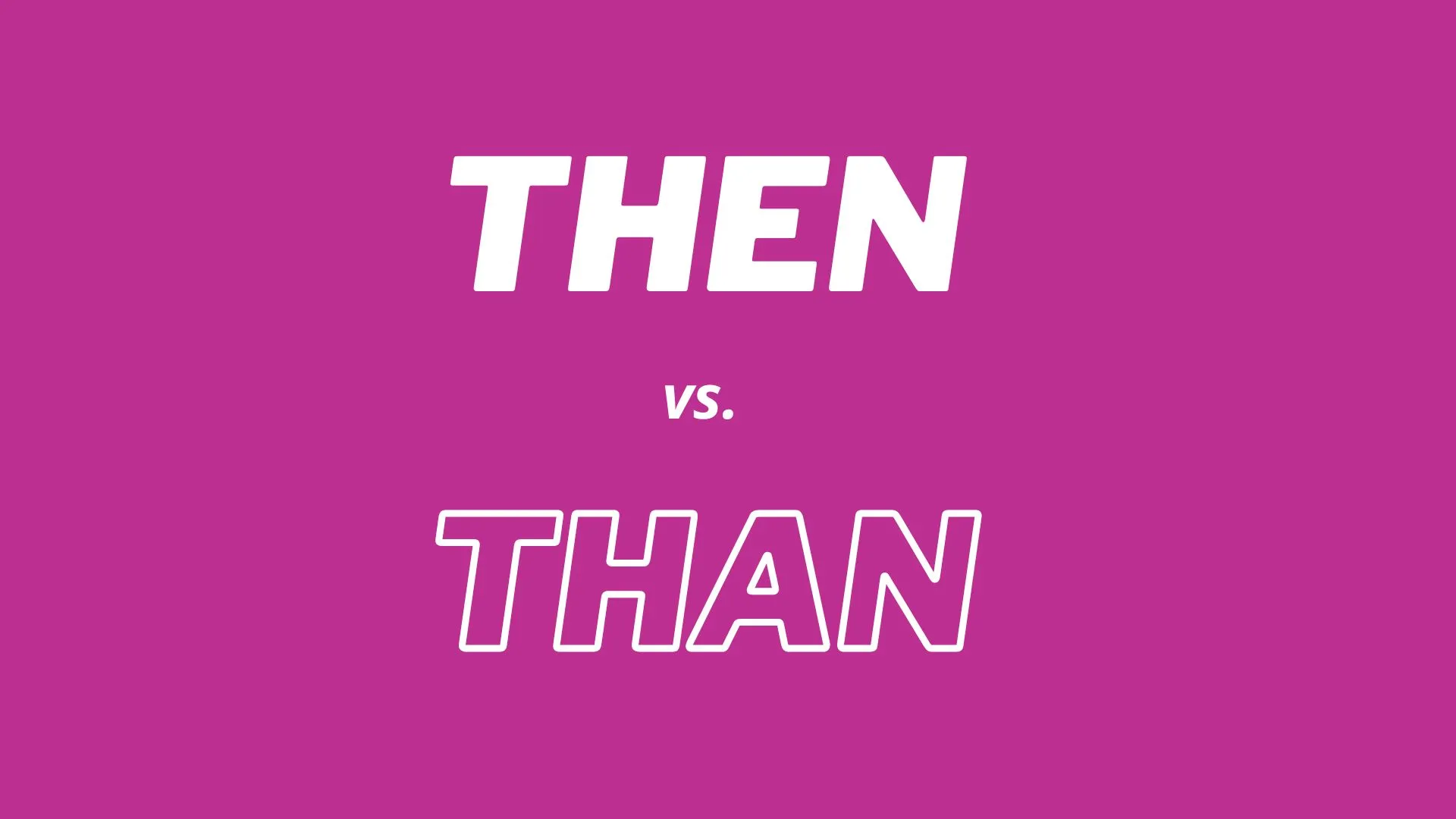

Are you often confused about when to use “then” and “than”? If so, you’re not alone! Many people, even native English speakers, have difficulty distinguishing between these two words. Fortunately, with a few simple tips, you can master the difference between “then” and “than.” This article will cover the difference between “then” and “than” is, when to use each one, examples, some memory tricks to help remember the difference, and common mistakes.
The confusion between “then” and “than” often comes from the fact that they are pronounced in a similar way. However, they are two very different words with different meanings and uses.
Put simply, “then” refers to time, while “than” is used to compare two things. Let's look at each of these words in more detail.
“Then” is an adverb that is most often used to talk about things that happen at a particular time. It is used to connect events or ideas in time or order and can be used to introduce something that happens after another thing. For example:
“Then” can also be used to mean “in addition” or “besides”. For example:
In these examples, “then” is used to add something else to the sentence.
On the other hand, “than” is a conjunction used to compare two things. It is used to show the difference between two things or to say that one thing is better or worse. For example:
It is important to note that when two things are being compared with “than,” the sentence must contain the words “more” or “less.” For example:
Now that you know the difference between “then” and “than,” let’s look at some examples to help you understand how to use them correctly.
If you’re having trouble remembering when to use “then” and “than,” here are a few memory tricks that can help:
Mixing up “then” and “than” is a common mistake.
Here are some examples of using “than” when “then” should be used:
Here are some examples of using “then” when “than” should be used:
It’s important to remember that “than” is used to compare two things.
If you’re an ESL learner, here are a few tips for you to better grasp the difference between “then” and “than”:
In conclusion, understanding the difference between “then” and “than” is essential for teaching and learning English. “Then” is an adverb used to describe a time or the order of events or actions, while “than” is a conjunction used to compare two or more things. Examples and memory tricks can help to understand and remember the difference between these two words. With practice and repetition, you will become more confident using “then” and “than.”
Date: January 9th, 2023
 Rob
Rob